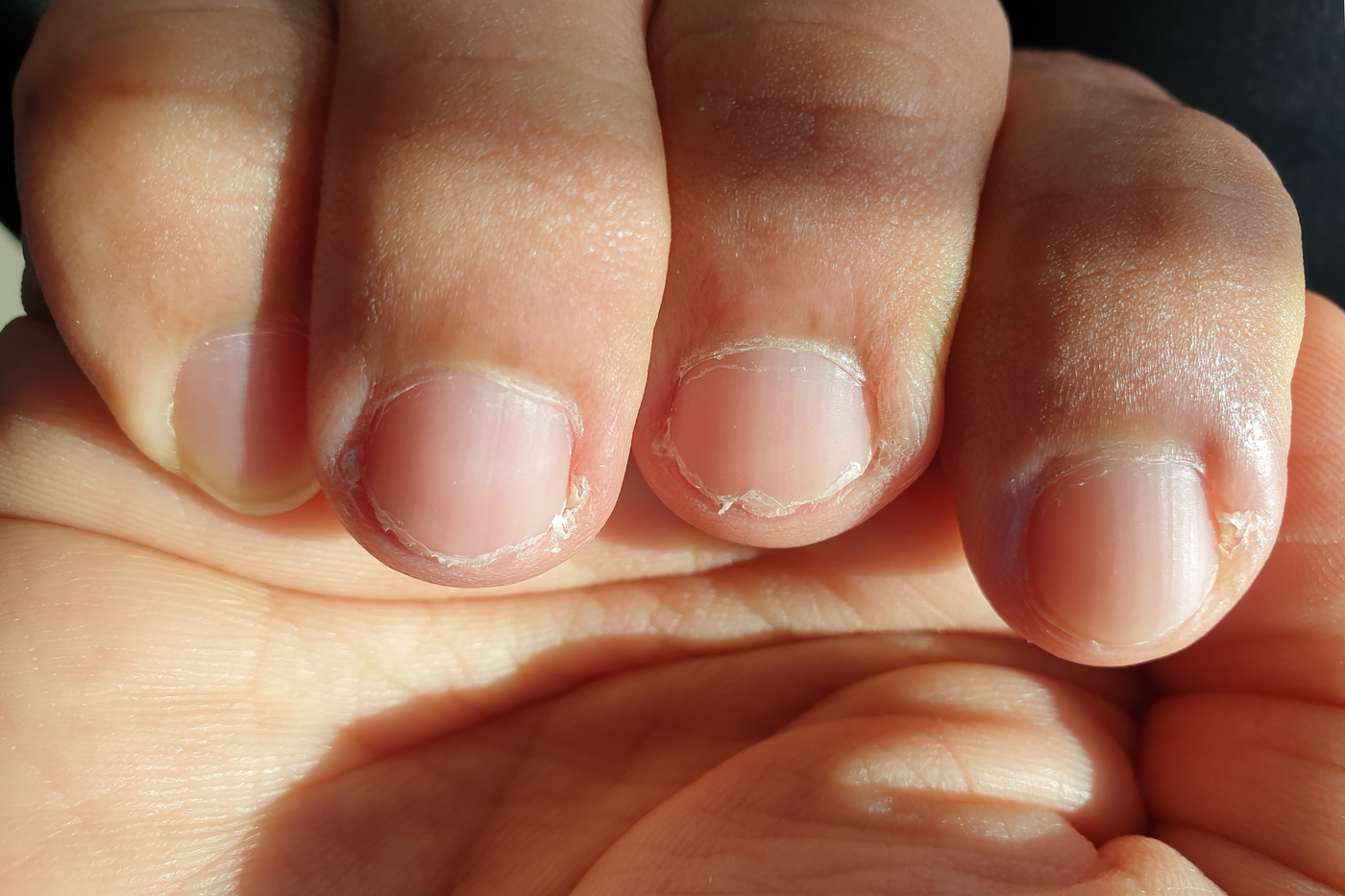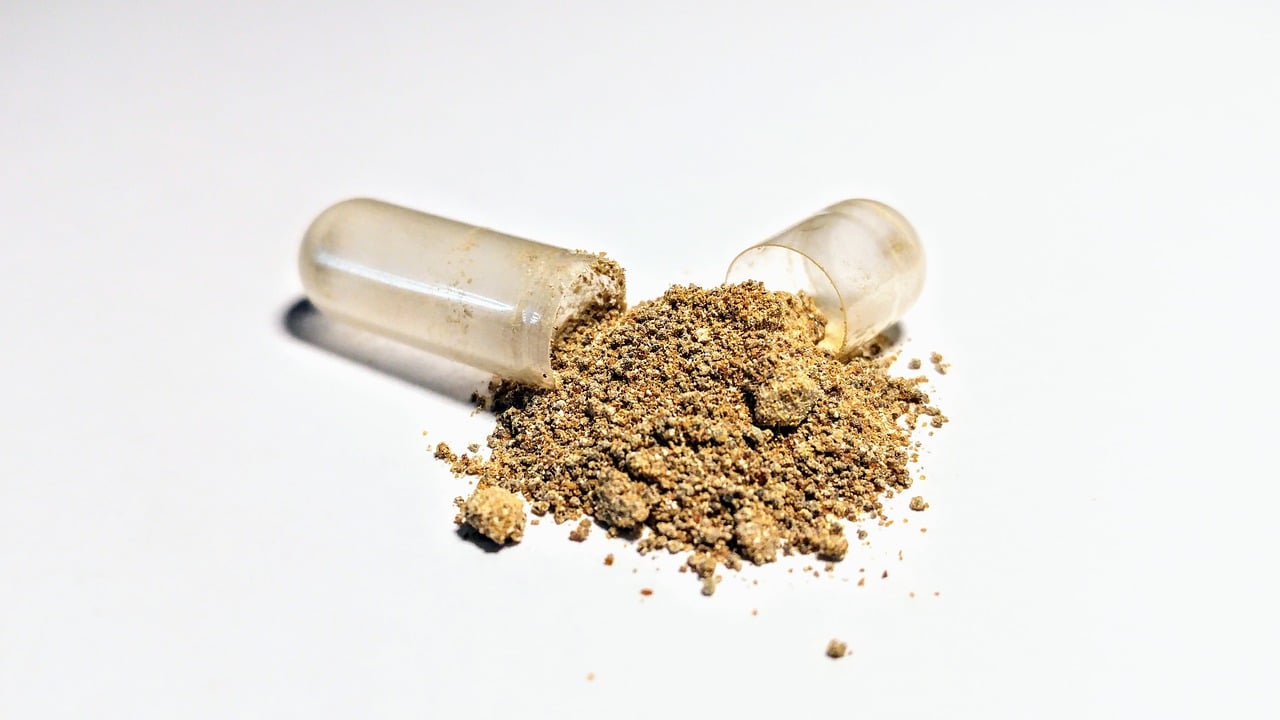This day in age, we see more and more carnivorous connoisseurs adopting a plant-based lifestyle. A vegan diet has become accepted as one of the healthiest ways to eat, the most ethical and planet-friendly, but it has also become much more accessible. Now, not only can you find vegan foods aplenty in grocery stores everywhere, but you can easily find a plant-based option on the menu at just about any restaurant chain, including many fast-food favorites (ie. Burger King's Beefless Burger)
While it's wonderful to see so many join the meat-free movement, it's also important to consider the potential nutrition pitfalls that can come with a vegan diet if you don't dedicate some time to planning out your nutrient needs.
Often, people trying a plant-based diet for the first time will rely on easy, but highly-processed, vegan food options since they tend to be slightly less intimidating than crafting a meat-free meal of their own. Unfortunately, this can quickly lead to a diet void of important vitamins and minerals.
Over time, this lack of micronutrients can take a major toll on our wellbeing and can lead to some serious health repercussions.
While those who are new to a plant-based lifestyle may be more susceptible to nutritional deficiencies, veteran vegans are not immune themselves. Several studies directed at examining the diets of vegans have found that a substantial portion of the meat-free population is deficient in one or more important vitamins and minerals.
Today, we are breaking down the vitamins and minerals that are important to add to a vegan diet and what we look for in a vegan supplement to optimize the health benefits. Finally, we'll discuss the best vegan multivitamin available to complete your plant-based diet plan.
Food Alone Won't Cut It
While a vegan diet offers many amazing health benefits, including a lowered risk for heart disease, lower average cholesterol levels, and a reduced risk of certain serious diseases, including several cancers and diabetes, it also has a few dietary drawbacks that could impair your wellbeing.
Just as with a traditional "meat and potatoes" diet, consuming a plant-based diet alone is not sufficient in providing our bodies the complete nutrient spectrum it needs to thrive. In today's culture of mass-produced, overly processed, and chemical-laden food production practices, many key vitamins and minerals are stripped from our food sources and often replaced with potentially harmful preservatives and additives.
Unfortunately, with financial gain and monetary growth at the forefront of most food manufacturers' minds rather than the health and wellness of the consumer, we have been left with a food industry that provides subpar nutrition through food and beverage items, and also produces foods that can further compromise our health.
Plant-based eaters have to navigate the nutritionally barren choices that dominate our supermarkets, and they have to account for a diet that, through the restriction of any product derived from an animal product or animal-derived byproduct, can easily result in a nutrient deficiency. For example, many vegan dieters struggle to meet the minimum nutrient requirements for several important vitamins and minerals, including the following:
Vitamins vegans need but are often lacking
- Vitamin B12: Found in animal products due to their intake of foods high in a bacteria which produces the vitamin, or from bacteria that are already present in their gut. Humans do produce this same bacteria in our colon, but we are only able to absorb nutrients as they pass through our small intestine. As such, we receive no benefit from our own internal source of vitamin B12 and must take in the nutrients from food sources. For this reason, Vegans must supplement vitamin B12.
- Omega 3, 6, and 9 Essential Fatty Acids: Commonly consumed in the form of fish and seafood dishes, many Vegans are often deficient in omega-3 fatty acids (particularly DHA) and vitamin B12 as previously mentioned – both critical nutrients for brain health cognitive focus, and to avoid brain fog and depression.
- Vitamin D3: Often consumed through dairy products, many vegan diets are extremely deficient in vitamin D3. From immune system support, mood and energy levels, and bone health, D3 is required by nearly every cell and tissue of the human body for optimal health and disease prevention.
- Vitamin A: The form of vitamin A, Retinol, is often more difficult for vegans to get through diet as it typically consumed through eggs. This is problematic for vegans because this form of the vitamin is far more efficient at converting to vitamin A than the plant-derived form, beta-carotene.
- Zinc: While there are many vegan-friendly sources of zinc, plants also contain natural chemicals called phytates which impair zinc absorption, making it much more difficult to meet the daily minimum daily intake recommended to stay healthy.
- Choline: Most dietary sources of choline are from animal products, like red meat, poultry, fish, dairy foods, and eggs. For this reason, vegans typically have lower than adequate levels of this essential nutrient that supports several critical body processes.
- Calcium: Most Americans meet their lofty calcium needs of 1000+ mg per day through various dairy products as well as fortified foods such as cereals and juice. While plant-based eaters can consume these fortified foods and beverages, there is some question on the bioavailability of the calcium supplied by these products and the ability to reach the daily calcium requirements.
- Iodine: Consistently found in dairy products and seafood and inconsistently found in plant-based sources, low iodine intakes, in conjunction with high intakes of soy products can result in thyroid problems. Iodine levels and thyroid metabolism are also impacted by iron and selenium – both commonly insufficient in vegan diets.
- Amino Acids: Out of the 20 amino acids, or "building blocks" of protein, 9 amino acids need to be consumed in our diet because they are not made by our bodies. Most complete proteins (those containing all 9 amino acids) are found in animal sources. For this reason, vegan diets are often deficient in the key muscle-building amino acids like L-carnitine, L-carnosine, L-creatine, L-lysine, and L-taurine.
Even with the best intentions and careful meal planning, it's incredibly difficult for anyone to meet all of their nutritional needs through diet alone, but it's especially hard for vegans.
A healthy, well-balanced diet should be the base for your nutritional needs, but for plant-based dieters in particular, it's important to fill in the nearly unavoidable gaps through supplementation. One of the best ways to do so is by choosing a multivitamin specifically designed to meet the nutritional needs of vegans.
While there are many multivitamins on the market, it's important to look for a product that takes careful consideration of the sensitive micronutrient ratios of certain vitamins and minerals, which promote both the nutrient absorption and bioavailability of each ingredient.
Finding a Functional Vegan Vitamin: 5 Tips for Choosing the Best Vegan Multivitamin
Tip #1: Vegan Specific Formulations and Dosages
In order to avoid the problematic "single supplement situation," many plant-based eaters will gravitate towards a multivitamin. However, many traditional multivitamins have been designed with the general population in mind (not vegans), meaning that the dosages for each nutrient is highly generalized and often misses the target for effective vitamin and mineral ratios required to maximize absorption.
While these supplements are predominantly ineffective for the typical animal-product consuming individual, they are even less so for plant-based dieters, who require different nutrients and higher doses of specific nutrients due to their lifestyle choices.
For example, many vegan dieters must supplement vitamin B12 and should supplement omega fatty acids (DHA, EPA), iron, zinc, and specific amino acids (L-carnitine, L-carnosine, L-creatine, L-lysine) to round out their nutrition and meet their daily requirements.
Since these nutrients are challenging to get through a plant-based meal plan alone, it's imperative for vegans to find an effective multivitamin supplement that delivers a highly bioavailable form of these key nutrients.
Tip #2: Nutrient Synergies that Boost Absorption
Many vitamins and minerals are best absorbed when combined with another specific micronutrient, and they also need to be consumed in specific doses. When a nutrient is consumed in excess, our body responds by flushing out the excess vitamin or mineral in order to maintain a biological equilibrium.[1] During this process, other important nutrients can be expelled unnecessarily, which ultimately can result in a more significant nutritional deficiency than we were facing prior to taking our supplement.
Tip #3: Convenience Leads to Compliance
If you follow a plant-based diet and are concerned about meeting all of your micronutrient needs, choosing individual supplements for each vitamin and mineral alone may seem like the most surefire means to round out your nutrition. However, this method is costly and time-consuming (in terms of finding each supplement and taking multiple pills, often several times a day), and it isn't the most effective way to meet your nutrient needs.
Tip #4: Avoiding Dangerous Additives and Animal Products
If you are someone who finds the idea of swallowing pills, well, hard to swallow, you're not alone. Many major supplement manufacturers are aware of many consumers' problems with pill-popping, but rather than reconceptualizing the standard pill supplement; these companies often rely on harmful and potentially dangerous additives with the hope that these ingredients will ease the process of taking tablets and horse-sized vitamin pills.
The majority of these ingredients are used solely for aesthetic purposes, such as artificial dyes and colorings, or as a lubricant to ease the "chalky choke down," such as magnesium stearate (which is often derived from pork byproduct).[2,3] Not only do these ingredients present a host of potentially serious health consequences, but they also impede the absorption of the nutrients present in the supplement itself.
This then begs the question, is my multivitamin doing more harm than good?
Tip #5: Sneaky Non-Vegan Ingredients
In addition to these adverse additives, plant-based eaters must also be on the lookout for non-vegan ingredients that can sneak into many supplements. Some of the common culprits include gelatin, which comes from the hooves and internal tissue lining of livestock, lanolin, which is a byproduct of sheep tissue. Gelatin is often found in vitamin D3 supplements, and carmine, which is used in red dye #40 (which has been linked to many disturbing health complications) and is sourced from desiccated beetles.[4]
When considering both the hidden harmful ingredients found in many standard multivitamins as well as inconspicuous animal-product additives that find their way into many supplements, it's clear that plant-based dieters have their work cut out for them when selecting a safe and effective multivitamin that also adheres to their lifestyle standards.
So then, what is the best multivitamin for vegan consumers?
The Best Vegan Multivitamin for a Plant-Based Diet
With the plight of plant-based eaters at the forefront of their mission, the team at Healthycell set out to design a vegan multivitamin with other nutrients vital for people on plant-based diets. One that is highly effective, free of animal products, and that's also enjoyable to take each day.
After years of research and testing that combined the expertise of both doctors and plant-based nutritionists, Healthycell has created the best multi-nutrient / multivitamin for vegans currently available called Vegan Essentials – a MICROGEL™delivered multivitamin.
Using advanced MICROGEL™ technology, the Vegan Essentials multi-nutrient / multivitamin provides a superior level of bioavailability for each of the key vitamins and minerals needed to round out a healthy and complete vegan diet that optimizes health, quality of life, and longevity.
The Vegan Essentials by Healthycell is the easiest one-a-day way to be a healthy vegan because it's the only vegan multivitamin supplement combo with 30+ vitamins, minerals, and other nutrients essential for plant-based diets.
It's made with 100% vegan ingredients, no artificial flavors, colors, or sweeteners and served in a natural peach-mango flavor so it's also the most delicious means to meet the micronutrient needs of a meat-free diet. It uses natural Palmyra nectar as a sweetener, so the final product is only 15 calories and has 0.5 grams of natural sugar – the same amount of natural sugar in one half of one single grape!
Leading review sites like Vegan Liftz and Total Shape have independently reviewed Vegan Essentials.
Vegan Essentials is more than a multivitamin. It includes all of the nutrients vegans need most, like vegan vitamin B12, vegan vitamin D3, vegan omega 3-6-9 for a source of DHA and EPA, iron, zinc, iodine, calcium, choline, and specific amino acids (L-carnitine, L-carnosine, L-creatine, L-lysine, L-taurine,) and much more.
If you've committed to a plant-based lifestyle and are looking for the perfect plant-based vegan supplement to boost your well-being and meet your nutritional needs, then Vegan Essentials by Healthycell is the "complete supplement" you've been searching for. It's the healthiest way to be vegan and live the life you believe in.
Vegan Essentials is the only vegan liquid vitamin supplement combo with 30+ vitamins, minerals, and other nutrients essential for plant-based diets.



